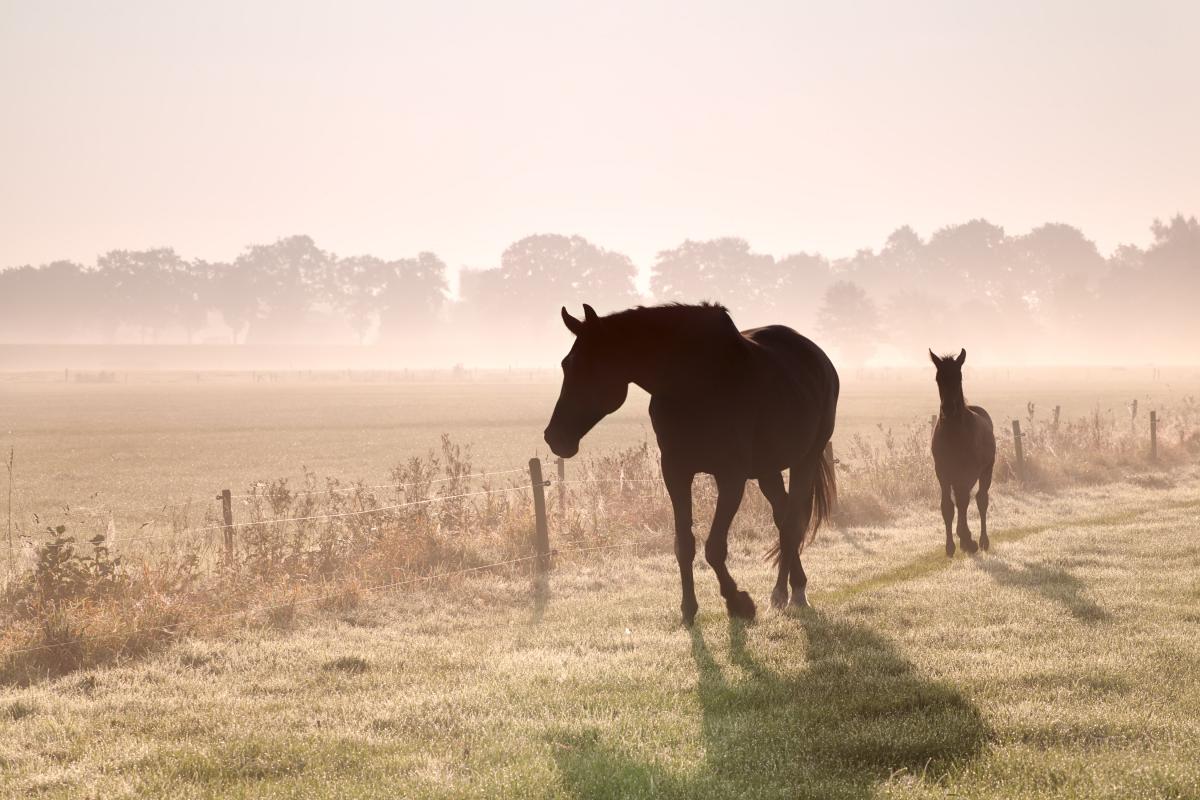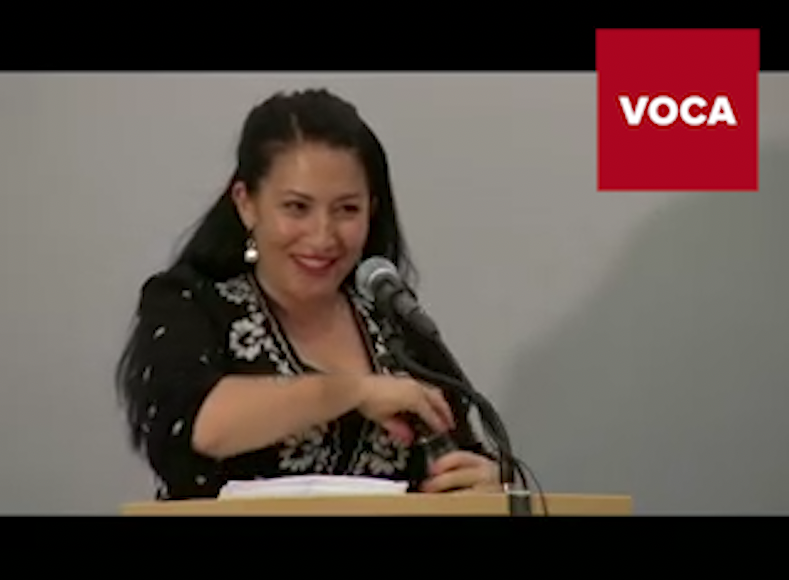The word “poem” comes from the Greek for “I make.” “Poesis” means “the process of emergence of something that did not previously exist.” A poem is more than words collected on a page or shared out loud: it is a process in real time, a creation. The best poems know this, and they leave space for the reader to actively discover something where once there was nothing. These poems make something, out of description and comparison. The best love poems don’t describe love or swoon for it but help it grow, right there on the page. They can be deceptively simple narratives that leave us readers paused, surprised.
Ada Limón’s “What I Didn’t Know Before” is such a love poem. When we read the text or listen to her perform it in the Voca archives, we can only say, “oh.” This is a love poem of emergence and it leaves its audience transformed.

“A horse gives way / to another horse and then suddenly there are / two horses, just like that.”
The title leads right into the poem: a rush of emotion, the excitement of storytelling. We literally fall into the first line, becoming a part of its making. While it is sonnet-like in its fourteen lines and fairly even rhythm, almost every line bursts over the standard ten syllables, trotting across and down the page.
“What I Didn’t Know Before” begins in a space of gestation, of absence: in the “before,” something was unknown. The speaker takes us readers through the creation of the knowledge that “horses simply give birth to other / horses.” This sentence, like the foaling, is so simple yet so complicated. This description of birth takes up six and a half of the poem’s fourteen lines: “A horse gives way / to another horse and then suddenly there are / two horses, just like that.” The enjambed lines rush us along through the foal’s own poesis.
The poem turns midway through the seventh line, comparing the horse birth to the speaker’s love: “That’s how I loved you,” she says, just like that. This remark is the only short sentence, the only end-stopped line. It’s the only truth that isn’t complicated by clauses and syntax. It gives us momentary pause before we gallop off again into another story of creation.
The second half of this poem races through a routine narrative, describing a lover getting off a train, juggling a coffee along with their bags. The two lovers see each other and laugh, vivacious and unafraid. This lover is coltish, “swinging” their limbs and possessions “unwieldily” in their excitement to meet our speaker.

The birth of a horse “is a pretty bizarre thing,” Limón says in her Voca reading. So is love. Love is a thing of its own, separate from the lovers. It may seem whole as it noses our palms. And while it may canter off, “just like that,” it is still a young creature that requires nurture. It may seem whole. It may insist on walking alone or on its own terms, as it if it has just appeared “fully formed.” It may surprise us with its strength. We can’t forget, though, that the foal has a mother. It was conceived, held by the mare, and must be fed and looked after for it to continue to grow.
This care is how a horse—how love—can come into its full power, not only “ready to run” but actually taking off, blazing across the field. Tenderness towards love is itself an act of creation, a poesis. It’s a pretty bizarre thing.
____
Stacey Balkun is the author of Sweetbitter & co-editor of Fiolet & Wing. Winner of the 2019 New South Writing Contest, her work has appeared in Best New Poets, Mississippi Review, Pleiades, & several other anthologies & journals. Stacey holds an MFA from Fresno State & teaches online at The Poetry Barn and The Loft. She lives and writes in New Orleans.

